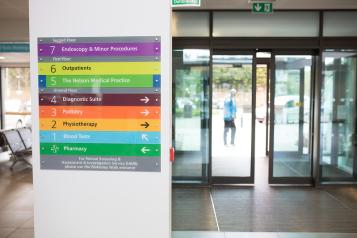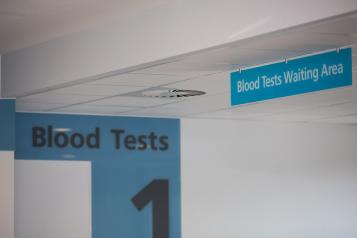Public attitudes toward Physician Associates

With plans to increase the number of Physician Associates (PA) employed by the NHS to 10,000 by 2037, Healthwatch England sought to understand public attitudes toward PA's.
What is a Physician Associate?
According to the Royal College of Physicians, a PA is a healthcare professional who works under the supervision of a senior doctor to help deliver effective care to patients. While they are not medical doctors, they can help assess, diagnose, and treat patients. However, they cannot replace the care of fully qualified doctors.
PA's have worked in England since 2002 but the number employed by the NHS has grown significantly in recent years. The Faculty of Physicians Associates found that 2,833 PA's were working in England in October 2022. In Greenwich, 6 PA's were employed in May 2024.
With the regulation of PA's due to start at the end of 2024, Healthwatch England sought to understand patients experiences of PA's.
What patients and the public think
In their polling of 1,914 adults living in England, Healthwatch England found over half (52%) agreed or strongly agreed that they "understood the difference between a physician associate and a doctor".
However, respondents aged between 18-34 were more likely to agree with the statement (58%) than those in older age groups (47% of 34–54-year-olds, and 49% of those aged 55+ agreed).
In speaking to local Healthwatch, Healthwatch England found that patients have a limited understanding of what a PA can and can't do. Moreover, patients were often not aware of the local presence of PA's and on most occasions, only found out about the role when given an appointment with a PA.
Patients awareness of who they are seeing
Where people knew they had received care from a PA, their experiences were mostly positive. People particularly valued that they could have their needs addressed quickly when they saw a PA.
However, Healthwatch England shares that many patients were not made aware of who they were seeing before or during their appointment. In some instances, patients had specially asked to see a doctor but were instead assigned to see a PA.
Guidance from the National Institute for Health and Care Excellence (NICE) states that staff must explain their role and responsibilities while interacting with patients.
Healthwatch England research revealed significant support for this among the public. Over three quarters (76%) of the survey respondents thought it was ‘important’ or ‘very important’ that the person providing their care ‘explains what their job involves’.
However, Healthwatch England's evidence suggests that not all staff are following the NICE guidance. Only 60% of those surveyed said that during their last NHS appointment, the person providing their care clearly explained their role.
Healthwatch England five recommendations
In partnership with the Patients Association and National Voices, Healthwatch England have made five recommendations to policymakers and regulators about how they can better support the roll out of PAs.
1. Clarity in direct patient care
Practising physician associates and those in training must explain their role to all patients they see. Providers of education and training, including medical royal colleges, should make clear that informing patients about roles and responsibilities is core to providing high-quality care.
2. Clarity on choice
While PAs can provide high-quality care and improve patient access for more straightforward health problems, national and local NHS organisations must make clear that patients have a choice to request an appointment with a fully qualified doctor if they prefer.
So people can make an informed choice, services should tell patients before an appointment:
- The types of clinicians available to see them
- The lengths of time they may have to wait to see different professionals, and
- If they see a physician associate, the PA may have to refer the patient to a GP or other senior doctor if the patient’s problem falls outside their scope of practice.
3. Clarity on training and regulation
In our polling, we found that the factor which made the public most confident in the person providing their care had “their skills and knowledge regularly reassessed”.
National bodies, including the Faculty of Physician Associates and the General Medical Council should be clear about the scope and content of the initial training of PAs and their ongoing assessment and revalidation.
4. Clarity of communication
Given the increasing use of new roles in services, NHS England and other national bodies should adopt a proactive approach to communicating with the public in this area.
Alongside broader awareness campaigns, Integrated Care Boards should set up patient forums to explicitly examine the deployment of new workforce roles. Patients and their representatives must be centrally involved in all future discussions about the use of PAs and other new roles.
5. Clarity on effectiveness
NHSE and the GMC should commission a formal evaluation of patient experience of physician associates in GP and hospital settings. This research would help to learn lessons to inform the expansion of this role and provide assurance that PAs are being used appropriately and are not as substitutes for fully qualified doctors.
Originally published on: Am I seeing a physician associate or a doctor? | Healthwatch


